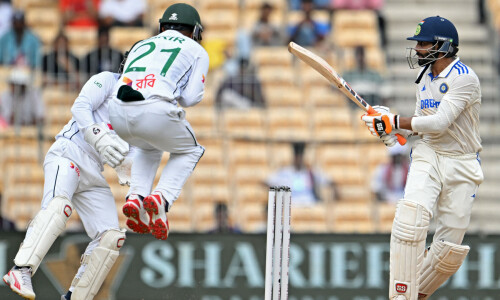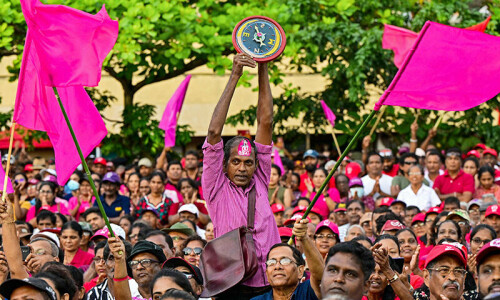KARACHI: Looking into why doctors are targeted, the causes behind their killings and the preference of various ethnic groups for specific hospitals were some of the questions formulated at a workshop on Saturday to carry out in-depth research on.
The workshop was organised by the International Committee of the Red Cross (ICRC) in collaboration with Ziauddin Medical University, Jinnah Sindh Medical University’s APPNA Institute of Public Health and Jinnah Postgraduate Medical Centre.
It was aimed at improving protection of patients, medical professionals, health facilities and ambulances from violence through humanitarian diplomacy, advocacy, promotion of law and practical interventions.
Trying to gain in-depth understanding of the types of violence that affect medical care in Karachi, the ICRC workshop identified and asked six groups of stakeholders — the authorities, individual doctors, tertiary care, ambulance services, community and primary health centres and the media — to develop a list of questions that needed to be explored and researched as a project to be later made available to the public.
On behalf of the authorities, assistant commissioner (Jamshed Quarters) Adnan Mahmood said violence had several dimensions to it. For example, attendants with injured or sick deliberately sometimes hurt their own people in order to exaggerate the situation play the victim. “Lack of communication can also bring up a violent situation against doctors and nurses in the ER. Then, there are forms of political violence, too. Also it has been noted that ambulance staff and workers involved in vaccination drives remain demoralised as their employers usually disown them in instances where they are afraid of litigation. But there is a need for ethical responsibility in all. Hospital premises also need physical protection,” he said.
Representing the group of doctors, Dr Mirza Ali Azhar said doctors were often accused of negligence while most of them tried their best to save lives. “Very often a patient’s family or friends try to tell us how to do our job. Sometimes they come in the form of a mob who want to accompany us inside the operating theatre as well. Lack of institutional support has left doctors vulnerable, too,” he said.
Representing the tertiary care group, Dr Seemin Jamali of the Jinnah Postgraduate Medical Centre said that medical staff had no training in dealing with weapons.
“We also need a better command and control system. For instance, there is an overuse of certain facilities like what happened at the JPMC on Oct 18, 2007 when all the injured, who numbered in hundreds, were brought to us. There is no need to overburden one hospital while other hospitals in the city also have good and well-equipped emergency wards. The ambulance services also need to know triage in order to categorise patients in emergencies and know where to take whom first.
“Also, we feel that there is no coordination when something happens in the city. Usually, we learn about an emergency through the media. It is only now that the commissioner office notifies us,” she said.
On behalf of ambulance services, Dr Shahid Raza of Aman Foundation said snatching of ambulances was also a kind of violence against health workers. “It is true that some ambulance services are not allowed in certain areas,” he added.
Dr Shanila Shakoor along with Dr Sohail in the ‘community and primary health centres’ group shared examples of violence against health workers such as the killing of polio workers in Gadap, threats to mental health staff in Bhitai Colony, discouraging medical staff from entering Rehri Goth by its residents, etc.
Journalist Waqar Bhatti of The News International said there was a need for hospitals and health workers when dealing with all these issues to also take the media on board.
Published in Dawn, August 24th , 2014















































Dear visitor, the comments section is undergoing an overhaul and will return soon.